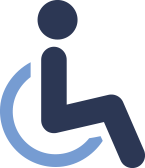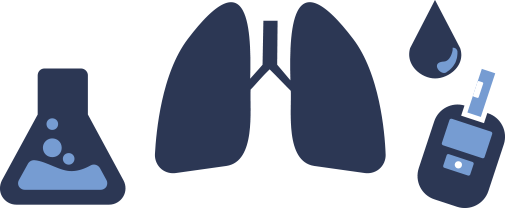
What's Medicare?
Medicare is the federal health insurance program for:
* People who are 65 or older* Certain younger people with disabilities
* People with End-Stage Renal Disease (permanent kidney failure requiring dialysis or a transplant, sometimes called ESRD)
The different parts of Medicare help cover specific services:
Medicare Part A (Hospital Insurance)
Part A covers inpatient hospital stays, care in a skilled nursing facility, hospice care, and some home health care.Medicare Part B (Medical Insurance)
Part B covers certain doctors' services, outpatient care, medical supplies, and preventive services.Medicare Part D (prescription drug coverage)
Part D adds prescription drug coverage to: * Original Medicare* Some Medicare Cost Plans
* Some Medicare Private-Fee-for-Service Plans
* Medicare Medical Savings Account Plans
For these type of plans you will need to obtain through private insurance companies and other approved by Medicare vendors. Medicare Advantage Plans may also offer prescription drug coverage that follows the same rules as Medicare Prescription Drug Plans (PDP).

How Original Medicare works
Original Medicare is coverage managed by the federal government. Generally, there's a cost for each service
Joining a health or drug plan
I'm newly eligible for Medicare because I turned 65. What can I do? Sign up for a Medicare Advantage Plan and/or a Medicare Prescription Drug Plan. When? During the 7-month period that: * Starts 3 months before the month you turn 65* Includes the month you turn 65
* Ends 3 months after the month you turn 65
| If you join | Your coverage begins |
|---|---|
| During one of the 3 months before you turn 65 | The first day of the month you turn 65 |
| During the month you turn 65 | The first day of the month after you ask to join the plan |
| During one of the 3 months after you turn 65 | The first day of the month after you ask to join the plan |

I'm already eligible for Medicare because of a disability, and I turned 65.
What can I do? * Sign up for a Medicare Advantage Plan and/or a Medicare Prescription Drug Plan.* Switch from your current Medicare Advantage Plan or Medicare Prescription Drug Plan to another plan.
* Drop a Medicare Advantage Plan or a Medicare Prescription Drug Plan completely.

When?
During the 7-month period that:
* Starts 3 months before the month you turn 65
* Includes the month you turn 65
* Ends 3 months after the month you turn 65
If you sign up for a Medicare Advantage Plan during this time, you can drop that plan any time during the next 12 months and go back to Original Medicare.
* Includes the month you turn 65
* Ends 3 months after the month you turn 65
If you sign up for a Medicare Advantage Plan during this time, you can drop that plan any time during the next 12 months and go back to Original Medicare.
I don't have Medicare Part A, and I enrolled in Medicare Part B during the Part B General Enrollment Period (January 1–March 31).
What can I do?Sign up for a Medicare Prescription Drug Plan. When?
April 1–June 30
Open Enrollment Period for Medicare Advantage and Medicare prescription drug coverage.
What can I do?* Change from Original Medicare to a Medicare Advantage Plan.
* Change from a Medicare Advantage Plan back to Original Medicare.
* Switch from one Medicare Advantage Plan to another Medicare Advantage Plan.
* Switch from a Medicare Advantage Plan that doesn't offer drug coverage to a Medicare Advantage Plan that offers drug coverage.
* Switch from a Medicare Advantage Plan that offers drug coverage to a Medicare Advantage Plan that doesn't offer drug coverage.
* Join a Medicare Prescription Drug Plan.
* Switch from one Medicare drug plan to another Medicare drug plan.
* Drop your Medicare prescription drug coverage completely.
When?
October 15–December 7
Medicare Advantage Open Enrollment Period.
What can I do?* If you’re in a Medicare Advantage Plan (with or without drug coverage), you can switch to another Medicare Advantage Plan (with or without drug coverage).
* You can drop your Medicare Advantage Plan and return to Original Medicare. You'll also be able to join a Medicare Prescription Drug Plan.
What can't I do?
* Switch from Original Medicare to a Medicare Advantage Plan.
* Join a Medicare Prescription Drug Plan if you're in Original Medicare.
* Switch from one Medicare Prescription Drug Plan to another if you're in Original Medicare.
If you enrolled in a Medicare Advantage Plan during your Initial Enrollment Period, you can change to another Medicare Advantage Plan (with or without drug coverage) or go back to Original Medicare (with or without a drug plan) within the first 3 months you have Medicare. When?
January 1–March 31

Can I get my health care from any doctor, other health care provider, or hospital?
In most cases, yes. You can go to any doctor, health care provider, hospital, or facility that is enrolled in Medicare and accepting new Medicare patients.Are prescriptions covered in Original Medicare?
With a few exceptions, most prescriptions aren't covered in Original Medicare, you will need to add drug coverage with a private company some popular options are AARP, Silverscript, Mutual of Omaha, Wellcare, Aetna, and some others these plans also varied by demographic location so request via our quote system.Do I need to choose a primary care doctor?
No, in Original Medicare you don't need to choose a PCP (primary care physician)
Do I have to get a referral to see a specialist?
In most cases, no. In Original Medicare, you don't need a referral, but the specialist must be enrolled in Medicare, good news is that the majority of doctors work with original Medicare, it is in many demographical location the standard/ foundation of services and offering that many private companies work from in terms of benefits and network to its enrollee..
Factors that affect Original Medicare out-of-pocket costs
* Whether you have Part A and/or Part B. Most people have both.* Whether your doctor, other health care provider, or supplier accepts assignment.
* The type of health care you need and how often you need it.
* Whether you choose to get services or supplies Medicare doesn't cover. If you do, you pay all the costs unless you have other insurance that covers it.
* Whether you have other health insurance that works with Medicare.
* Whether you have Medicaid or get state help paying your Medicare costs.
* Whether you have a Medicare Supplement Insurance (Medigap) policy.
* Whether you and your doctor or other health care provider sign a private contract.


What Part A covers
What's covered?3>
In general, Part A covers:
Inpatient care in a hospital
Inpatient hospital care
Medicare Part A (Hospital Insurance) covers inpatient hospital care when all of these are true:
* You’re admitted to the hospital as an inpatient after an official doctor’s order, which says you need inpatient hospital care to treat your illness or injury.
* The hospital accepts Medicare.
* In certain cases, the Utilization Review Committee of the hospital approves your stay while you’re in the hospital.

Your costs in Original Medicare
* $1,408 deductible for each benefit period.
* Days 1–60: $0 coinsurance for each benefit period.
* Days 61–90: $352 coinsurance per day of each benefit period.
* Days 91 and beyond: $704 coinsurance per each "lifetime reserve day" after day 90 for each benefit period (up to 60 days over your lifetime).
* Beyond lifetime reserve days : all costs.
* $1,408 deductible for each benefit period.
* Days 1–60: $0 coinsurance for each benefit period.
* Days 61–90: $352 coinsurance per day of each benefit period.
* Days 91 and beyond: $704 coinsurance per each "lifetime reserve day" after day 90 for each benefit period (up to 60 days over your lifetime).
* Beyond lifetime reserve days : all costs.
Skilled nursing facility (SNF) care
Medicare Part A (Hospital Insurance) covers skilled nursing care provided in a SNF in certain conditions for a limited time (on a short-term basis) if all of these conditions are met:* You have Part A and have days left in your benefit period to use.
* You have a qualifying hospital stay .
* Your doctor has decided that you need daily skilled care. It must be given by, or under the supervision of, skilled nursing or therapy staff.
* You get these skilled services in a SNF that’s certified by Medicare.
* You need these skilled services for a medical condition that’s either:
* A hospital-related medical condition treated during your qualifying 3-day inpatient hospital stay, even if it wasn't the reason you were admitted to the hospital.
* A condition that started while you were getting care in the SNF for a hospital-related medical condition (for example, if you develop an infection that requires IV antibiotics while you're getting SNF care).

Your costs in Original Medicare
You pay:
* Days 1–20: $0 for each benefit period .
* Days 21–100: $176 coinsurance per day of each benefit period.
* Days 101 and beyond: all costs.
* Inpatient care in a skilled nursing facility (not custodial or long-term care)
You pay:
* Days 1–20: $0 for each benefit period .
* Days 21–100: $176 coinsurance per day of each benefit period.
* Days 101 and beyond: all costs.
* Inpatient care in a skilled nursing facility (not custodial or long-term care)

Long-term care hospital services
Medicare Part A (Hospital Insurance) covers the cost of long-term care in a long-term care hospital (LTCH).
Your costs in Original Medicare
You pay this for each benefit period:
* Days 1-60: $1,364 deductible.
* Days 61-90: $341 coinsurance each day.
* Days 91 and beyond: $682 coinsurance per each “lifetime reserve day” after day 90 for each benefit period (up to 60 days over your lifetime).
* Each day after the lifetime reserve days: all costs.
*You don’t have to pay a deductible for care you get in the LTCH if you were already charged a deductible for care you got in a prior hospitalization within the same benefit period. This is because your benefit period starts on day one of your prior hospital stay, and that stay counts towards your deductible.
For example:
* You’re transferred to a LTCH directly from an acute care hospital.
* You’re admitted to a LTCH within 60 days of being discharged from a hospital.
You pay this for each benefit period:
* Days 1-60: $1,364 deductible.
* Days 61-90: $341 coinsurance each day.
* Days 91 and beyond: $682 coinsurance per each “lifetime reserve day” after day 90 for each benefit period (up to 60 days over your lifetime).
* Each day after the lifetime reserve days: all costs.
*You don’t have to pay a deductible for care you get in the LTCH if you were already charged a deductible for care you got in a prior hospitalization within the same benefit period. This is because your benefit period starts on day one of your prior hospital stay, and that stay counts towards your deductible.
For example:
* You’re transferred to a LTCH directly from an acute care hospital.
* You’re admitted to a LTCH within 60 days of being discharged from a hospital.

Hospice care
If you have Medicare Part A (Hospital Insurance) and meet all of these conditions, you can get hospice care:* Your hospice doctor and your regular doctor (if you have one) certify that you’re terminally ill (with a life expectancy of 6 months or less).
* You accept palliative care (for comfort) instead of care to cure your illness.
* You sign a statement choosing hospice care instead of other Medicare-covered benefits to treat your terminal illness and related conditions.

Your costs in Original Medicare
* You pay nothing for hospice care.
* You may need to pay a copayment of no more than $5 for each prescription drug and other similar products for pain relief and symptom control while you're at home. In the rare case your drug isn’t covered by the hospice benefit, your hospice provider should contact your Medicare drug plan to see if it's covered under Part D.
* You may need to pay 5% of the Medicare-approved amount for inpatient respite care.
* Medicare doesn't cover room and board when you get hospice care in your home or another facility where you live (like a nursing home).
* Home health care
* You pay nothing for hospice care.
* You may need to pay a copayment of no more than $5 for each prescription drug and other similar products for pain relief and symptom control while you're at home. In the rare case your drug isn’t covered by the hospice benefit, your hospice provider should contact your Medicare drug plan to see if it's covered under Part D.
* You may need to pay 5% of the Medicare-approved amount for inpatient respite care.
* Medicare doesn't cover room and board when you get hospice care in your home or another facility where you live (like a nursing home).
* Home health care
Home health services
How often is it covered?Medicare Part A (Hospital Insurance) and/or Medicare Part B (Medical Insurance) cover eligible home health services like these:
* Part-time or "intermittent" skilled nursing care
* Physical therapy
* Occupational therapy
* Speech-language pathology services
* Medical social services
* Part-time or intermittent home health aide services (personal hands-on care)
Usually, a home health care agency coordinates the services your doctor orders for you. Medicare doesn't pay for:
* 24-hour-a-day care at home
* Meals delivered to your home
* Homemaker services (like shopping, cleaning, and laundry), when this is the only care you need
* Custodial or personal care (like bathing, dressing, or using the bathroom), when this is the only care you need
Who's eligible?

All people with Part A and/or Part B who meet all of these conditions are covered:

* You must be under the care of a doctor, and you must be getting services under a plan of care created and reviewed regularly by a doctor.
* You must need, and a doctor must certify that you need, one or more of these:
* Intermittent skilled nursing care (other than drawing blood)
* Physical therapy, speech-language pathology, or continued occupational therapy services. These services are covered only when the services are specific, safe and an effective treatment for your condition.
*The amount, frequency and time period of the services needs to be reasonable, and they need to be complex or only qualified therapists can do them safely and effectively. To be eligible, either:
* 1) your condition must be expected to improve in a reasonable and generally predictable period of time, or
* 2) you need a skilled therapist to safely and effectively make a maintenance program for your condition, or
* 3) you need a skilled therapist to safely and effectively do maintenance therapy for your condition. The home health agency caring for you is approved by Medicare (Medicare certified).
* You must be homebound, and a doctor must certify that you're homebound.
You're not eligible for the home health benefit if you need more than part-time or 'intermittent' skilled nursing care.
You may leave home for medical treatment or short, infrequent absences for non-medical reasons, like attending religious services. You can still get home health care if you attend adult day care.
* You must need, and a doctor must certify that you need, one or more of these:
* Intermittent skilled nursing care (other than drawing blood)
* Physical therapy, speech-language pathology, or continued occupational therapy services. These services are covered only when the services are specific, safe and an effective treatment for your condition.
*The amount, frequency and time period of the services needs to be reasonable, and they need to be complex or only qualified therapists can do them safely and effectively. To be eligible, either:
* 1) your condition must be expected to improve in a reasonable and generally predictable period of time, or
* 2) you need a skilled therapist to safely and effectively make a maintenance program for your condition, or
* 3) you need a skilled therapist to safely and effectively do maintenance therapy for your condition. The home health agency caring for you is approved by Medicare (Medicare certified).
* You must be homebound, and a doctor must certify that you're homebound.
You're not eligible for the home health benefit if you need more than part-time or 'intermittent' skilled nursing care.
You may leave home for medical treatment or short, infrequent absences for non-medical reasons, like attending religious services. You can still get home health care if you attend adult day care.
What Part B covers
Part B covers 2 types of services
* Medically necessary services: Services or supplies that are needed to diagnose or treat your medical condition and that meet accepted standards of medical practice.* Preventive services: Health care to prevent illness (like the flu) or detect it at an early stage, when treatment is most likely to work best.
You pay nothing for most preventive services if you get the services from a health care provider who accepts assignment.

Part B covers things like:
* Clinical research* Ambulance services
* Durable medical equipment (DME)
* Mental health
* Inpatient
* Outpatient
* Partial hospitalization
* Limited outpatient prescription drugs

What's a Medicare health plan?
Generally, a Medicare health plan is offered by a private company that contracts with Medicare to provide Medicare Part A (Hospital Insurance) and Medicare Part B (Medical Insurance) benefits to people who enroll in the plan.Medicare Advantage Plans
Medicare Advantage Plans cover all Medicare services
Medicare Advantage Plans must cover all of the services that Original Medicare covers. However, if you’re in a Medicare Advantage Plan, Original Medicare will still cover the cost for hospice care, some new Medicare benefits, and some costs for clinical research studies. In all types of Medicare Advantage Plans, you're always covered for emergency and urgently needed care.The plan can choose not to cover the costs of services that aren't medically necessary under Medicare. If you're not sure whether a service is covered, check with your provider before you get the service.
Most Medicare Advantage Plans offer coverage for things that aren't covered by Original Medicare, like vision, hearing, dental, and wellness programs (like gym memberships). Plans can also cover more extra benefits than they have in the past, including services like transportation to doctor visits, over-the-counter drugs, adult day-care services, and other health-related services that promote your health and wellness. Plans can also tailor their benefit packages to offer these new benefits to certain chronically ill enrollees. These packages will provide benefits customized to treat those conditions. Check with the plan to see what benefits are offered and if you qualify. Most include Medicare prescription drug coverage (Part D). In addition to your Part B premium, you usually pay a monthly premium for the Medicare Advantage Plan. In 2020, the standard Part B premium amount is $144.60 (or higher depending on your income).
Other Medicare health plans
Medicare Cost Plans
Medicare Cost Plans are a type of Medicare health plan available in certain areas of the country.
Here are important facts about Medicare Cost Plans:
* You can join even if you only have Part B.* If you have Part A and Part B and go to a non-network provider, the services are covered under Original Medicare . You would pay the Part A and Part B coinsurance and deductible .
* You can join anytime the plan is accepting new members.
* You can leave anytime and return to Original Medicare.
* You can either get your Medicare prescription drug coverage from the plan (if offered), or you can join a Medicare Prescription Drug Plan (Part D) .

* Demonstrations/Pilot Programs Demonstrations and pilot programs, (also called “research studies”) are special projects that test improvements in Medicare coverage, payment, and quality of care. They usually operate only for a limited time for a specific group of people and/or are offered only in specific areas.

* Programs of All-inclusive Care for the Elderly (PACE) PACE (Program of All-inclusive Care for the Elderly) is a Medicare/Medicaid program that helps people meet health care needs in community.
* Medication Therapy Management (MTM) programs for complex health needs
* Medication Therapy Management (MTM) programs for complex health needs

Medicare Medical Savings Account (MSA) Plans
What's a Medicare MSA Plan?
Medicare works with private insurance companies to offer you ways to get your health care coverage. These companies can choose to offer a consumer-directed Medicare Advantage Plan, called a Medicare MSA Plan.Medicare MSA Plans have 2 parts
Medicare MSA Plans combine a high-deductible insurance plan with a medical savings account that you can use to pay for your health care costs.* High-deductible health plan: The first part is a special type of high-deductible Medicare Advantage Plan (Part C) . The plan will only begin to cover your costs once you meet a high yearly deductible , which varies by plan.
* Medical Savings Account (MSA): The second part is a special type of savings account. The Medicare MSA Plan deposits money into your account. You can use money from this savings account to pay your health care costs before you meet the deductible. What's covered?
Medicare MSA plans cover the Medicare services that all Medicare Advantage Plans must cover. In addition, some Medicare MSA plans may cover extra benefits for an extra cost, like:
* Dental
* Vision
* Long-term care not covered by Medicare

Preventive & screening services
Medicare Part B (Medical Insurance) covers:* Abdominal aortic aneurysm screening
* Alcohol misuse screenings & counseling
* Bone mass measurements (bone density)
* Cardiovascular disease screenings
* Cardiovascular disease (behavioral therapy)
* Cervical & vaginal cancer screening
* Colorectal cancer screenings
* Multi-target stool DNA tests
* Screening barium enemas
* Screening colonoscopies
* Screening fecal occult blood tests
* Screening flexible sigmoidoscopies
* Depression screenings
* Diabetes screenings
* Diabetes self-management training
* Glaucoma tests
* Hepatitis B Virus (HBV) infection screening
* Hepatitis C screening test
* HIV screening
* Lung cancer screening
* Mammograms (screening)
* Nutrition therapy services
* Obesity screenings & counseling
* One-time “Welcome to Medicare” preventive visit
* Prostate cancer screenings
* Sexually transmitted infections screening & counseling
* Shots:
* Flu shots
* Hepatitis B shots
* Pneumococcal shots
* Tobacco use cessation counseling
* Yearly "Wellness" visit

Your Medicare costs
To get help paying for medicare cost please you will need to enroll to one of these state programsMedicaid
Medicaid is a joint federal and state program that: Helps with medical costs for some people with limited income and resources Offers benefits not normally covered by Medicare, like nursing home care and personal care services
Medicare Savings Programs
State Medicare Savings Programs (MSP) programs help pay premiums, deductibles, coinsurance, copayments, prescription drug coverage costs.
PACE
PACE (Program of All-inclusive Care for the Elderly) is a Medicare/Medicaid program that helps people meet health care needs in the community.
Lower prescription costs
If you meet certain income and resource limits, you may qualify for a program called Extra Help from Medicare to pay the prescription costs, premiums, deductibles, and coinsurance of Medicare prescription drug coverage. In 2020, prescription costs are no more than $3.60 for each generic/$8.95 for each brand-name covered drug for those enrolled in the program.
Programs for people in U.S. territories
There are programs in U.S. territories to help people with limited income and resources pay their Medicare costs. U.S. territories include:
* Puerto Rico
* The U.S. Virgin Islands
* Guam
* The Northern Mariana Islands
* American Samoa
Find your level of Extra Help (Part D)
Extra Help is a program to help people with limited income and resources pay Medicare prescription drug program costs, like premiums, deductibles, and coinsurance.
Insure Kids Now
The Children's Health Insurance Program (CHIP) provides free or low-cost health coverage for more than 7 million children up to age 19. CHIP covers U.S. citizens and eligible immigrants.
Supplemental Security Income (SSI)
A monthly benefit paid by Social Security. SSI is for people with limited income and resources who are disabled, blind, or age 65 or older. SSI benefits aren't the same as Social Security retirement or disability benefits.

Part A costs
How much does Part A cost?
Premium-free Part A You usually don't pay a monthly premium for Medicare Part A (Hospital Insurance) coverage if you or your spouse paid Medicare taxes for a certain amount of time while working. This is sometimes called 'premium-free Part A.' Most people get premium-free Part A.You can get premium-free Part A at 65 if:
* You already get retirement benefits from Social Security or the Railroad Retirement Board.
* You're eligible to get Social Security or Railroad benefits but haven't filed for them yet.
* You or your spouse had Medicare-covered government employment.
If you're under 65, you can get premium-free Part A if:
* You got Social Security or Railroad Retirement Board disability benefits for 24 months.
* You have End-Stage Renal Disease (ESRD) and meet certain requirements.
Part A premiums
If you don't qualify for premium-free Part A, you can buy Part A.
If you buy Part A, you'll pay up to $458 each month. If you paid Medicare taxes for less than 30 quarters, the standard Part A premium is $458. If you paid Medicare taxes for 30-39 quarters, the standard Part A premium is $252.

Part B costs
Some people automatically get Medicare Part B (Medical Insurance), and some people need to sign up for Part B. Learn how and when you can sign up for Part B.If you don't sign up for Part B when you're first eligible, you may have to pay a late enrollment penalty.
How much does Part B cost?
Part B premiumsYou pay a premium each month for Part B. Your Part B premium will be automatically deducted from your benefit payment if you get benefits from one of these:
* Social Security
* Railroad Retirement Board
* Office of Personnel Management
If you don’t get these benefit payments, you’ll get a bill.
Most people will pay the standard premium amount. If your modified adjusted gross income is above a certain amount, you may pay an Income Related Monthly Adjustment Amount (IRMAA). Medicare uses the modified adjusted gross income reported on your IRS tax return from 2 years ago. This is the most recent tax return information provided to Social Security by the IRS.
The standard Part B premium amount in 2020 is $144.60.
Income Related Monthly Adjustment Amount (IRMAA). IRMAA is an extra charge added to your premium.
| If your yearly income in 2018 (for what you pay in 2020) was | You pay each month (in 2020) | ||
|---|---|---|---|
| File individual tax return | File joint tax return | File married & separate tax return | |
| $87,000 or less | $174,000 or less | $87,000 or less | $144.60 |
| above $87,000 up to $109,000 | above $174,000 up to $218,000 | Not applicable | $202.40 |
| above $109,000 up to $136,000 | above $218,000 up to $272,000 | Not applicable | $289.20 |
| above $136,000 up to $163,000 | above $272,000 up to $326,000 | Not applicable | $376.00 |
| above $163,000 and less than $500,000 | above $326,000 and less than $750,000 | above $87,000 and less than $413,000 | $462.70 |
| $500,000 or above | $750,000 and above | $413,000 and above | $491.60 |
Part B deductible & coinsurance
In 2020, you pay $198 for your Part B deductible. After you meet your deductible for the year, you typically pay 20% of the Medicare-approved amount for these:* Most doctor services (including most doctor services while you're a hospital inpatient)
* Outpatient therapy
* Durable medical equipment (DME)
